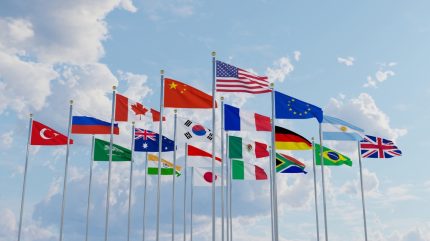
“We are choking on plastic,” declared UN Secretary-General António Guterres, addressing a panel of international negotiators in Cali, Colombia. Tasked with creating a binding global agreement to tackle plastic pollution, the panel heard Mr. Guterres warn of the consequences of inaction.
“Each year, humanity produces over 460 million metric tonnes of plastic,” he said. “Half of it is designed for single-use purposes – used once and tossed away. By 2050, there could be more plastic in the ocean than fish.”
The push for an international agreement reflects rising public demand worldwide for concrete solutions to the plastic crisis.
The current summit in Colombia is part of a series of negotiations, with a final round set for late November in Busan, South Korea. The urgency to reach an agreement by the end of 2024 was reinforced in the Pact for the Future, signed by UN Member States in September.
Mr. Guterres praised Peru and Rwanda for their pivotal role in proposing a global solution at the UN Environment Assembly in 2022.
The proposal acknowledged the devastating effects of plastic on both ecosystems and human health, a concern shared by communities globally. “Plastic pollution is everywhere – all around us and even inside us – from our seas to our blood, to our brains,” Mr. Guterres noted.
An overdue response to global demand
The international focus on plastic pollution reflects a significant shift toward environmental accountability, urged forward by public demand. Mr. Guterres described the moment as a chance to prove that “multilateralism, while not always easy, can deliver for people, health and the environment.”
As representatives work through the complexities of the treaty, the need for an inclusive solution has become clear, recognising the efforts of those most affected by the plastic waste stream.
Waste-pickers, often from marginalised backgrounds, play a critical role in the recycling of plastic, with the International Alliance of Waste-pickers noting that their work accounts for around 60 per cent of all recycled plastic.
These workers, many of whom are climate refugees or survivors of social challenges, are crucial to reducing waste.
The UN Environment Assembly’s resolution UNEA-5/14 has called for protections for waste-pickers within any forthcoming treaty, acknowledging their “significant contribution” to global recycling efforts.
This recognition highlights the essential yet often undervalued role of waste-pickers in global waste management, as countries increasingly look to them for sustainable solutions.
The path forward: hope for a binding agreement
As the upcoming discussions in Busan approach, hopes remain high for a conclusive and binding agreement. The negotiations mark a significant turning point in the global approach to waste, offering a chance to shift from short-term fixes to long-term, systemic solutions.
Mr. Guterres’s message encapsulated the urgency of the challenge: “We need action,” he said. “People are demanding it…This is an opportunity to demonstrate that multilateralism…can deliver for people, health and the environment.”
As the world awaits the outcome of these negotiations, there is a growing recognition that this treaty could redefine how humanity manages its relationship with plastic.
If successful, the treaty would set the stage for an era of more responsible production, use, and disposal of plastic, empowering communities worldwide to protect the planet for future generations.



